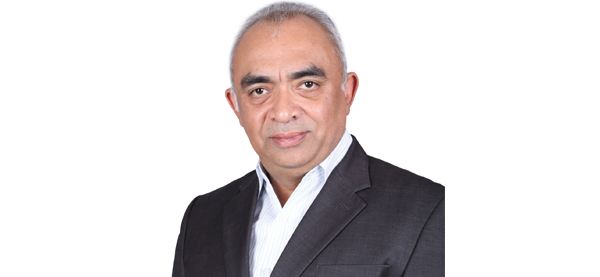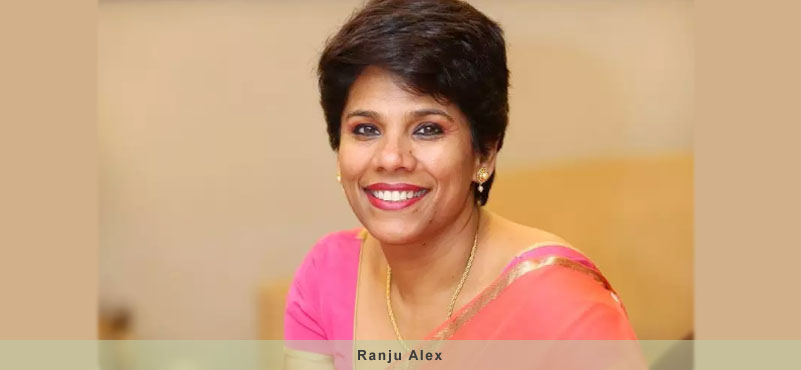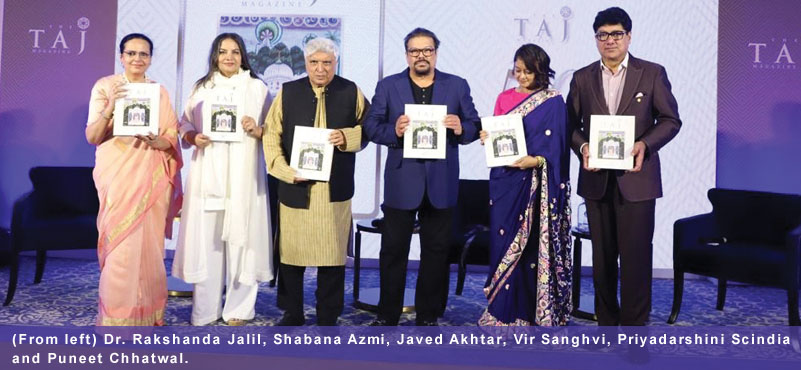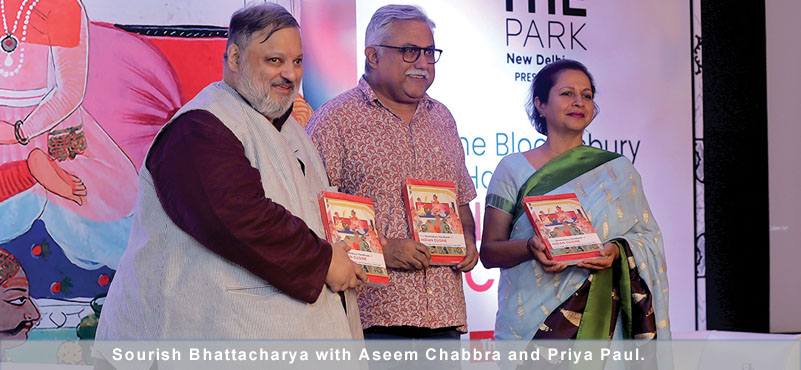Any hospitality player intends to find a footing in the mid-market space, it must scale its presence to make itself relevant, says JB Singh, President and CEO, Interglobe Hotels. He is of the opinion that the recent spate of M&As are an outcome of consolidation.

PRESIDENT AND CEO, INTERGLOBE HOTELS
You are undoubtedly one of the strongest players in the mid segment. You have introduced concepts like self-service. Do you think that this could be an answer from the hotel industry to some of the disruptors in the market?
We do not look at ourselves as being in the budget segment as much as we look at ourselves as being part of the mid-market segment. I think, more importantly than that, we are today in an area, if you see the quality of our hotels, where our hotels attract all kinds of clients. We have young clients ranging from students traveling, to chief executives of companies. The hotels are built to cater to people who want quality hotels at great value, and quite often, I struggle with which sector we want to place our hotels because we are actually quite unique and different, and are very happy to be in that space. Also, I think there is a lot of confusion anyway between hotel owners and hotel aggregators. These are two different kind of businesses with different business models. As a hotel owner, I do not want to be seen as an aggregator. I think it is the aggregators that want to be seen as hotel owners.
My concern with that is that people must understand if that is the right messaging or not. We are clearly hotel owners. Our investments are in to infrastructure, land and building, providing quality service, quality hotels as well as brand promise on safety, security, hygiene, comfort and so forth. We are a committed hotel player. I think that the uniqueness that we bring is that we are able to sort of give a product which is right now non-existent in the whole space. There is currently no hotel in the area where we are positioned currently that brings in the consistency with which we do, across the country. Our rooms are standardised, our menus are standardised, our quality of service, service levels, brand promise, everything is standardised. Today, we are possibly the only one who is able to execute it that fast and efficiently. Almost in excess of 50 percent of our customers today are repeat customers which is very good retention.
Being a part of a bigger company, you have very deep pockets but a lot of international companies have invested in the market, especially in some of the aggregators, to the extent of having outspent some of the big brands and their cumulative investment in the past decade. Do not you think that this is also a challenge for some of the institutional players who might not have that kind of backing?
I think the two models are completely different and I think it is important to understand that the play the aggregators have is driving volume and revenue through a business model that is completely different. How investors see that is completely up to them. We are more on the assets side of the business. We too have access to funds, in-fact most industry players today have access to funds and they will continue to have access to funds. Today, the hotel segment is massively under penetrated in the country. It will always remain as an area where people would be interested in investing. We get a lot of interested individuals who are looking at India but I think the key is for people to understand and know their return on investments. We have to just build efficiently and make sure that we are giving all the right quality products.
Coming back to Ibis, could you just tell us what it is that it stands for?
Ibis stands for great quality and great value. You can actually stay at an Ibis which is an absolutely international class hotel, providing an international class experience which begins right from the point of entering the hotel and other aspects like the quality of check-in or the food. Apart from the fit-outs, it is the quality of the staff ultimately makes the main difference in any hotel. Our entire staff is trained at an international level by ACCOR and customer service is a priority for us. All the aspects including the ambience, the music, the quality of our air-conditioning is all top notch. The amount of investment we make in just getting the acoustics in our rooms correct is something I always talk about. These are small areas where people do not tend to spend a lot of time. We on the other hand even spend time on things like branding the beds people sleep on (The Sweet Bed). What I can say is that the service and the product that we offer has been researched so much that it is absolutely relevant to the young, discerning traveller. Someone who has travelled a lot, gets this product in a flash because it has exactly what you need when you travel.
You have been opening multiple outlets to cement your position in the cities that you are placed in. What is the modus operandi? Do you want to establish yourself at the pole position and acquire the mid-market space completely?
The hotel industry is such it just takes so much time to sort of get there but what we believe is that we need to be aware of where the customer is. These cities are no longer just cities, they are metropolises and the demand in these cities is just great and we want to go where the demand is. That tends to work well for us as well as our customers – which is why we want to make sure that we isolate the markets well. We want to be in the markets where immediate demand is available but having said that it is not something that keeps us away from upcoming markets. As much as we will continue to keep investing in markets which have immediate demand, we will also continue to have a lookout for upcoming markets as well, for instance, Coimbatore, Nashik and Jaipur. Broadly speaking we want to be in the high-density markets where the customers are. If we have a presence in the market and we believe in that market, we commit ourselves to the market. This really is great for the industry, the customer and us as well.
Just curious, what about the Northeast? Any plans for that region?
We believe it is a great market to be in, but India is a very large country. Northeast is a great market to be in, as are so many. We want to have a greater presence in Gujarat, but we already have so much on our plate right now – last year we opened five hotels. At the moment, we are not looking at anything in the region, but we are open to that possibility.
The recently released HVS report says that the leisure segment and the mid-market would be the driver of India’s domestic tourism. Why is it that everybody is placing their bets on this segment? Do you see the 5-star segment also being a driving factor given that Indian incomes have been seeing a consistent rise?
I think if somebody is saying that the luxury space does not have a future, then they are completely wrong. Something that is really important here is that the markets get mapped correctly. The luxury segment will definitely continue to grow. I think what will happen is that luxury will get redefined. Hotels will have to stack up to be able to give that level of hardwares, softwares, services etc. to actually be able to position themselves in that segment. Another trend that we may see is how luxury hotels will get stacked up. Large, expensive spaces do not make projects viable. This industry is resource hungry and we have to create assets that are very efficient on resources. How luxury will get built up will probably be need to looked at.
The big wave will continue to happen in the mid-market space because that is the big emerging space. That is the segment that will actually raise the national per capita, and, therefore, those numbers will be large. So, anybody who wants to play in this space must think of scale to make their presence felt. I think in India we will see a fair amount of consolidation over time with entrance of new players and we will see scale. So, I am not so sure how many people are betting on it. I am sure people believe that the space has a future, which in turn means scale.
What is your take on mergers and acquisitions and why do we see an increasing number of mergers and acquisitions in the hospitality space?
Mergers and acquisitions happen in every industry over time as the industry consolidates itself and moves from single ownership to institutional ownership. You will see it in hospitality, retail, and all other industries. We as a country are consolidated; smaller businesses will become mid-sized businesses. This is typically known as the barbell effect. It means that when you operate on two sides of the industry, so the middle piece starts to drop off. So, to remain relevant, the middle pieces have to go in and join either of the sides. The product definition needs to become very clear. Although, as India is a really big country, it might take some time for this effect to be visible in some of the smaller markets.
What are your expectations of HICSA? What do you think would be some of the pressing issues that will be discussed?
From the top of my head, expectations of these conferences are largely around issues that plagiarise the industry. One issue that is always with us is developmental challenges. I think today the industry’s developmental challenges are still not over. Government licensing still continues to be a matter that needs more resolution. Laws pertaining to land records continue to be different in different states. These are some impediments to growing fast. If GDP must grow, then everyone must grow. These are some of the issues which are very worrying.




































